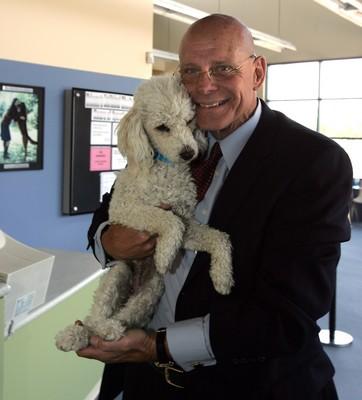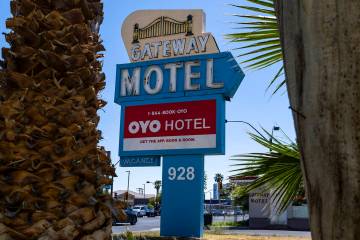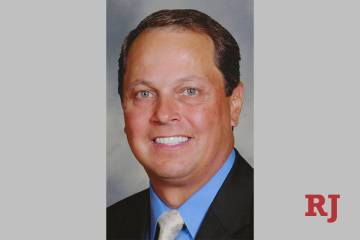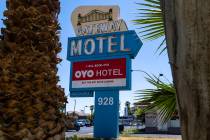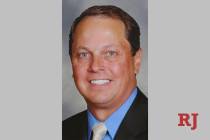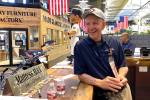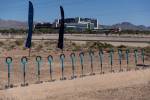Exec helps businesses steer toward brighter days
Lanis O'Steen learned to run fast and focus on the ball as wide receiver and team captain of the Tulane University football team in 1966.
That year, he broke records when he caught a 30-yard pass and ran 42 yards for a touchdown against the University of Miami.
The New Orleans college fought to a 5-4-1 season his senior year.
As a businessman, O'Steen has been running hard and watching the bottom line ever since as if he can hear the footsteps of competitors behind him.
He honed his skills as a stockbroker, investment banker and then a management turnaround specialist before starting his first business. He now runs his own consulting firm.
O'Steen's latest challenge is helping new managers at the Lied Animal Shelter reorganize operations following the euthanization of 1,000 dogs and cats because of an outbreak of disease related to overcrowding early this year.
Question: What did you do after graduating from Tulane?
Answer: I went to work for E.F. Hutton as a stockbroker in New York. Then, I worked in Houston for Institutional Equity, an investment banking firm. We focused on a lot of new technology. We focused on companies that catered to business customers.
Question: What companies did you help to go public with stock offerings?
Answer: There was a Texas Instruments' spinoff in the early 1970s that made the first digital watch.
Question: What then?
Answer: I worked at Cort Furniture Rental, which rents furniture for offices and homes.
They moved me periodically to various cities to help with new markets or underperforming ones.
Typically, I moved every six months to a year. I worked as district general manager and helped optimize operations. I didn't realize at the time what kind of foundation that was laying for me (in career development).
Question: You said you started your own business then. Tell me about it.
Answer: I opened O'Steen Furniture Rental, my own furniture and equipment retailer in the Dallas-Fort Worth area. We catered to corporate managers and individuals who were assigned to temporarily work in a city before moving. I ran the company from 1976 to 1994, but I sold the business to Cort in 1990. In 1994, Cort put me to work as the Dallas-Fort Worth market manager. Cort bought out another company that provided furniture for trade shows and conventions. Then we put together a plan to build the trade show and convention business.
At the end of '96, I moved to Las Vegas and started Cort Trade Show Furnishings. We went from $400,000 to $25 million in annualized revenue in 20 months.
We acquired or consolidated eight to 10 (trade show and convention business services around the country) and made Las Vegas headquarters of that business.
Then, I helped reorganize the Resort at Summerlin. It's a very profitable property today. Larco Hospital Management operates it as the JW Marriott Las Vegas Resort. The owners leased the casino space to Rampart Casino, which Bill Paulos and Bill Wortman operate.
Question: You said you left the country next. Where did you go?
Answer: I got referred to a job in Nairobi, Kenya. It's absolutely what you see on the Discovery Channel. You see those wildebeests by the thousands. You see lion prides feeding on giant elands.
There's high unemployment there; most people are very well-educated.
This company was in the wholesale and retail, plumbing and hardware business. It was being abused by the inside management.
In eight months, we got it to the point where there was consistent and reliable reporting. The controlling shareholders got back into control.
After Kenya, I served as interim president for a government contractor (Adtech) in San Antonio.
They supplied technical support for operations to government agencies to places around the work.
Then, I began to focus more on my consulting group, the Profit Group (back in Las Vegas). I wanted to help a lot of small businesses.
Question: Tell me about the free counseling you are providing the Lied Animal Shelter.
Answer: We saw an emergency and a need for help and we volunteered.
I serve as chapter chairman and CEO of the Turnaround Management Association.
We brought a team of people in to assess the situation and help the new executive director, Chris Robinson, who is very, very capable.
Question: What areas are you focusing on?
Answer: One is productivity. Two is human resources, principally reducing (employee) turnover.
Three is cash flow. By doing those first two things, you take care of most of the third.
Question: What went wrong at the animal shelter?
Answer: Overcrowding happened because good people with good intentions wanted to take care of every possible animal they could.
They got overburdened with it, which led to overcrowded, unsanitary conditions and fomented problems with disease.
They corrected that.
I see another need that is so much bigger, and I am 100 percent confident that we could be helpful with that University Medical Center.
I've had people say you'd be crazy to tackle a deal like that, but that's the same thing they said about the Resort at Summerlin.
They said it couldn't survive. It was not a viable business.
Question: What is the secret of your success?
Answer: Hard work. I don't know any substitute for it.
VITAL STATISTICS Name: Lanis O'Steen Position: Chief Executive Officer and Chairman, The Profit Group Family: Wife, Lorrie; seven adult children Education: Undergraduate degree in business administration from Tulane University Work history: Stockbroker at E.F. Hutton in New York; investment banker with Institutional Equity of New York and other cities; turnaround manager with Cort Furniture Rental; owner of O'Steen Furniture Rental in Dallas; chief executive director with Cort Trade Show Furnishings; chief executive officer and chairman of The Profit Group. Hobbies: Anything outdoors Hometown: Jacksonville, Fla. In Las Vegas since: 1996 The Profit Group is at 7320 Smoke Ranch Road, Suite D; it can be reached at 363-6207.



